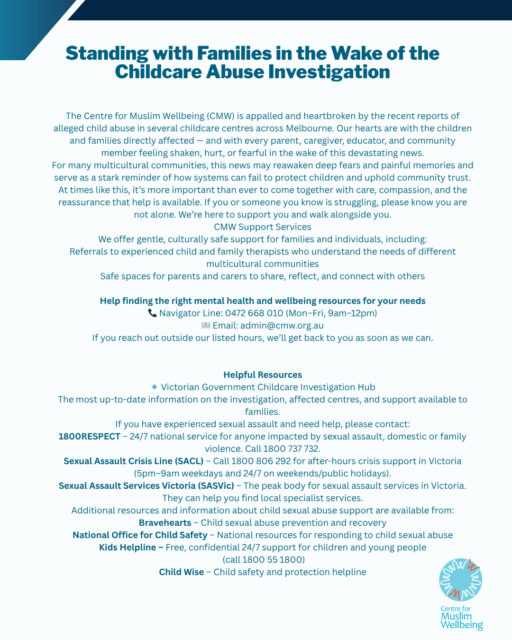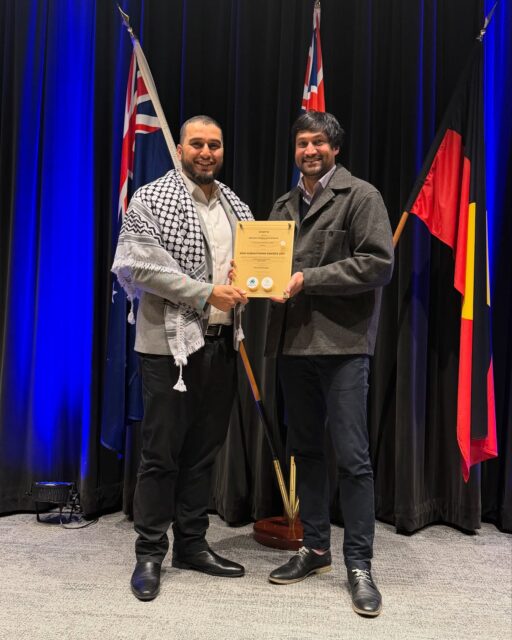Imagine what you wish Muslim leaders would do. Now imagine you have someone doing that well. Now imagine that this person who filled the needed role and was greatly impactful is using his position to harm others and serve himself.
The altruistic veneer is a way to simply serve himself. This is the rude awakening many of us are forced to come to when a religious figure is discovered to be corrupt. You will see others minimizing the transgressions and focusing only on the good. Debates over what to do next may tear families and communities apart. Those who have been hurt will be blamed by some who just see them as a problem to get rid of so the religious leader can continue doing good work.
Here are three examples that serve a need, gather an audience, but can be used to harm others. This is not an exhaustive list, as any good cause can be used.
1. Masculinity/Futuwwa – We clearly see that there is a lack of understanding of masculinity. Young men know they are in need of an education to follow the Prophetic tradition and become real men. Given this serious need, as well as the degeneracy in popular masculinity gurus, it is very easy for Muslim masculinity figures to step in and fill the void. In the name of making men out of boys and toughening up young men, this becomes an easy place to bully men. The complaints of these men are ignored in the name of ‘tarbiya’ and even clear sharia violations are ignored as ‘not a big deal.’
2. Female scholarship – Putting Muslim women forward as scholars has reached such a symbolic significance that no one investigates further when someone makes a claim to support it. “Support female scholarship” is an easy way to raise funds. It is tempting to over-promote female scholars and exaggerate qualifications by those who see them as a solution to one form of exploitative relationships. When some of these same ustadhas and shaykhas use their positions to bully, their transgressions are excused or ignored, especially by those who portray spiritual abuse as men abusing women.
3. Tasawwuf/Spiritual focused Muslims – Focusing on Sufism often helps bypass the negative associations non-Muslims might have with the term ‘Islam.’ Sufism has been the favored form of Islam by western governments, and since it gives Muslims a quick way to distinguish themselves from the ‘bad Muslims’ (Wahabbis), they serve an important function of showing that Islam is beautiful and peaceful. While true tasawwuf is the highest expression of Islam (maqam al-ihsan), it is also easy to use it to take advantage of others and for endless manipulation. When the student-master relation is exploited, it is easy to blame the victim for not being tough enough and not having what it takes to become a master. Even when the actions of the shaykh are listed out, acknowledged, and are objectively considered a transgression, the romanticism of a rigorous process in which the shaykh molds a murid into a ‘Sufi master,’ in which only the strong survive, works in favor of the shaykh.
Allah uses whom He wills for serving His religion. There’s no guarantee that someone doing good work is not also doing bad things. We must afford everyone a clean slate, but not make excuses or ignore the obvious when it is made clear. Furthermore, even if a person is otherwise pious, but wrongs an individual, the wronged Muslim has a right to justice. We can never blame the one wronged for seeking justice. As we respect the good work Muslim leaders do, that good work can never be a get out of jail free card.
Muslim organizations should have a code of conduct where they establish a culture of expectations and best practices. Do not desire a universal code. Diversity is a part of our religious history, and a lack of central authority is a blessing. The best way forward is for each organization to set its own rules so we can avoid public exposures and trial by public opinion. Having clear guidelines saves us from having retroactive debates about whether or not certain actions were appropriate, it prevents leaders from false accusations, and gives the organization something clear to highlight as a violation. Proper procedures will not stop abuse, but will provide an avenue for justice.
About the Author:
Danish Qasim is the founder of In Shaykh’s Clothing (www.inshaykhsclothing.com). He has 12 years experience working with victims of spiritual abuse. Danish began a formal study of the Islamic sciences locally in 2006. Upon graduating in 2010 from U.C. Berkeley, he dedicated himself to full time traditional Islamic studies. His overseas studies include Teumerat, Mauritania in the school of Murabit al-Hajj (رحمه الله) and studying with scholars in Istanbul. His areas of studies include fiqh, aqida, mantiq, hadith, tasawuf, and tafseer. Danish teaches these sciences privately. He is also well experienced in community work, Muslim leadership training, and Muslim youth development. In 2019 he finished his Masters focusing on spiritual abuse.







